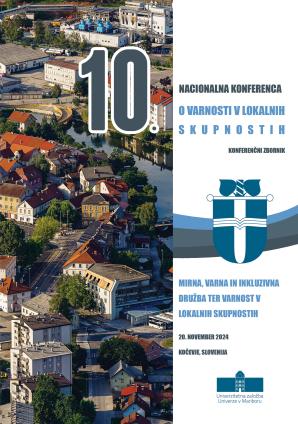Juvenile Delinquency Prevention: The Impact of Protective Factors in Rural and Urban Environments
Synopsis
This paper examines juvenile delinquency and compares the impact of protective factors in urban and rural environments in Slovenia. Protective factors are conditions or attributes in individuals, families, communities, or the broader society that reduce or eliminate the risk of engaging in or committing deviant acts. They play a crucial role in preventing juvenile delinquency by providing youth with the support and resources for overcoming challenges and helping the youth make positive life choices. The article uses data from the Slovenian part of the International Self-Report Delinquency Study and Victimization 4 (ISRD4) to explore the variability of the influences of protective factors in different environments on high school respondents and their involvement in delinquency. Using multivariate analyses, it examines the correlation between delinquency and certain protective factors, including family, friends, neighbourhood, school, leisure time, and individual characteristics of respondents.







